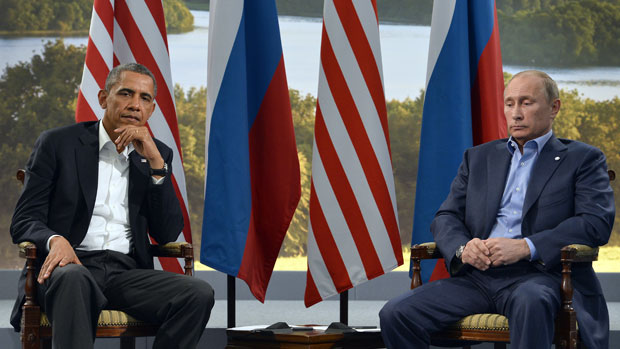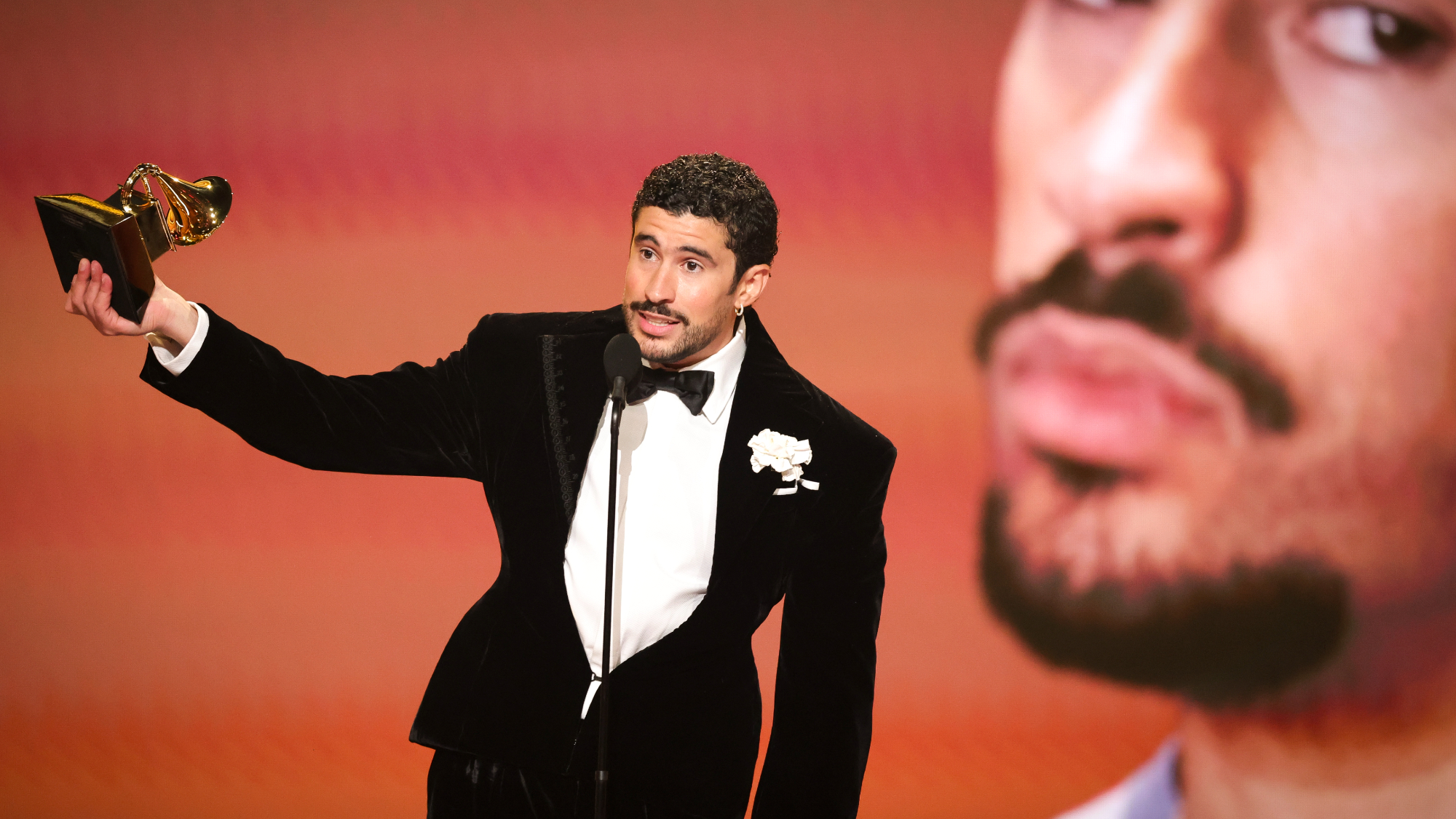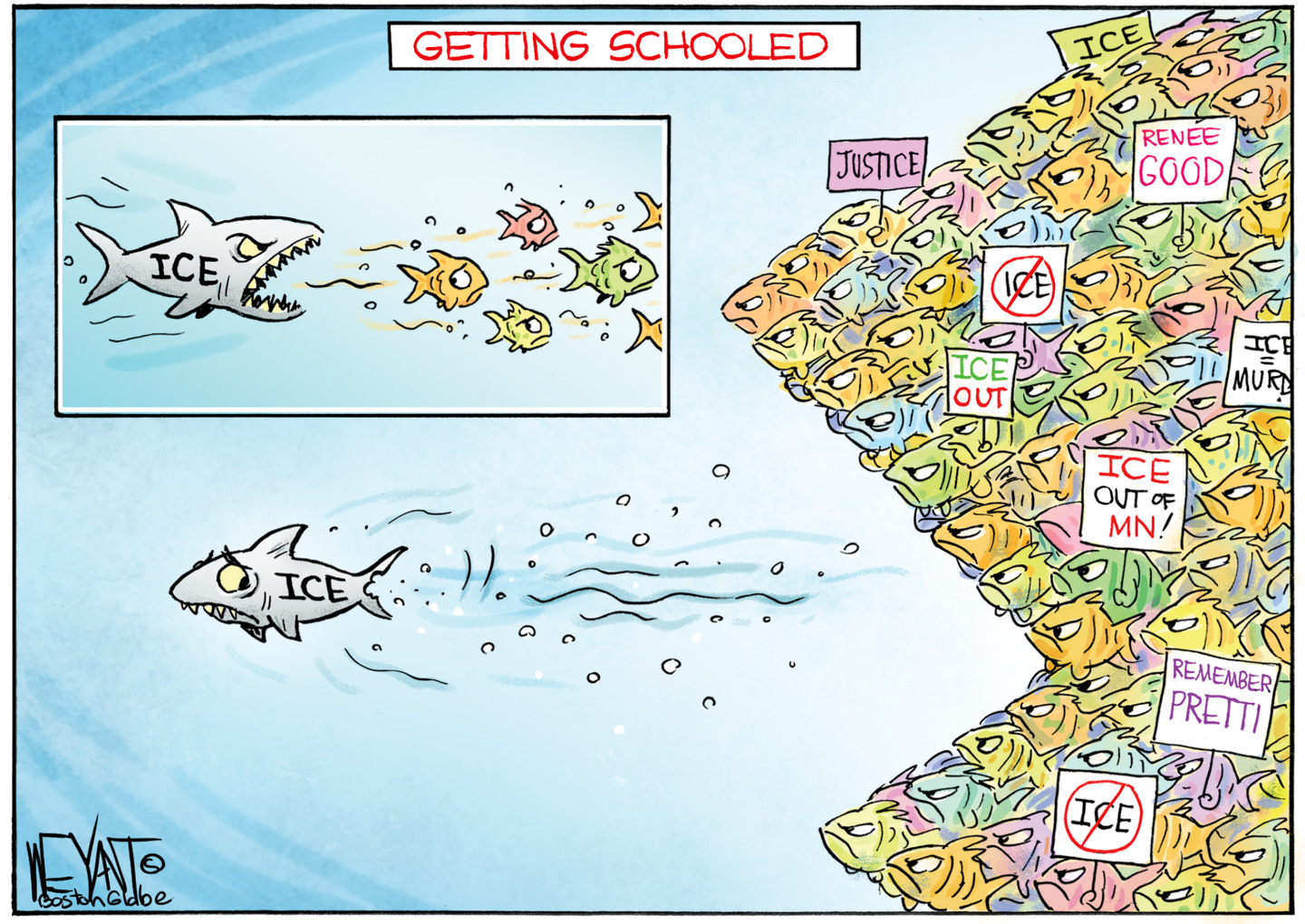Russia and America: how serious is the threat of a new Cold War?
US decides to move weapons onto Russia's doorstep as Vladimir Putin vows to bulk up his nuclear arsenal

Washington has announced that it will be repositioning tanks and heavy weapons in Eastern Europe, in the latest escalation in the simmering conflict between Russia and the US that is threatening a return to the days of the Cold War.
Around 250 US tanks and heavy weaponry units will be moved to positions in the Baltic states of Estonia, Lithuania and Latvia, as well as Bulgaria, Romania and Poland.
The move is meant to reassure Nato's allies that have been unnerved by recent threats from Russia and terrorist groups, says Voice of America News.
The Week
Escape your echo chamber. Get the facts behind the news, plus analysis from multiple perspectives.

Sign up for The Week's Free Newsletters
From our morning news briefing to a weekly Good News Newsletter, get the best of The Week delivered directly to your inbox.
From our morning news briefing to a weekly Good News Newsletter, get the best of The Week delivered directly to your inbox.
US defence secretary Ash Carter said the decision would "to enable richer training and [offer] more mobility to forces in Europe". He said the US presence in the region would be "persistent" and "agile".
But the Russian defence ministry said stationing the artillery on its doorstep would be the most aggressive act by the US since the Cold War.
Adding to the growing tensions, Vladimir Putin last week announced that Moscow will be adding more than 40 intercontinental ballistic missiles to its nuclear arsenal this year.
The crisis in Ukraine has seen relations between Moscow and the West plunge to a post-Cold War low, reports The Guardian. Nato accuses Russia of arming and funding separatist troops, a claim Moscow continues to deny.
A free daily email with the biggest news stories of the day – and the best features from TheWeek.com
Carter, who is meeting with Nato defence ministers in Brussels this week to discuss the ongoing crisis, said he was not looking to rekindle the conflict with Russia. "While we do not seek a cold, let alone a hot war with Russia, we will defend our allies," he said.
However, the BBC's defence correspondent Jonathan Beale argues that "while Nato insists this is not a new Cold War, it is starting to look and sound remarkably similar".
It is currently training its own rapid response force in Poland, which aims to have boots on the ground at troublespots within 48 hours. Although authorities say it is not meant to be provocative, it is "clearly designed to send a signal to Moscow," says Beale.
So where is this all likely to lead? "It has very dangerous possibilities," investigative journalist Robert Parry who has been following the crisis in Ukraine since protests first erupted last year, told website Global Research.
"One hopes, of course, that cooler heads will prevail," he said. "But we see that when people paint themselves into corners, they sometimes don't want to get into the embarrassment of getting themselves out."
-
 Bad Bunny, Lamar, K-pop make Grammy history
Bad Bunny, Lamar, K-pop make Grammy historySpeed Read The Puerto Rican artist will perform at the Super Bowl this weekend
-
 Political cartoons for February 2
Political cartoons for February 2Cartoons Monday’s political cartoons include ICE getting schooled, AI in control, and more
-
 Democrats win House race, flip Texas Senate seat
Democrats win House race, flip Texas Senate seatSpeed Read Christian Menefee won the special election for an open House seat in the Houston area